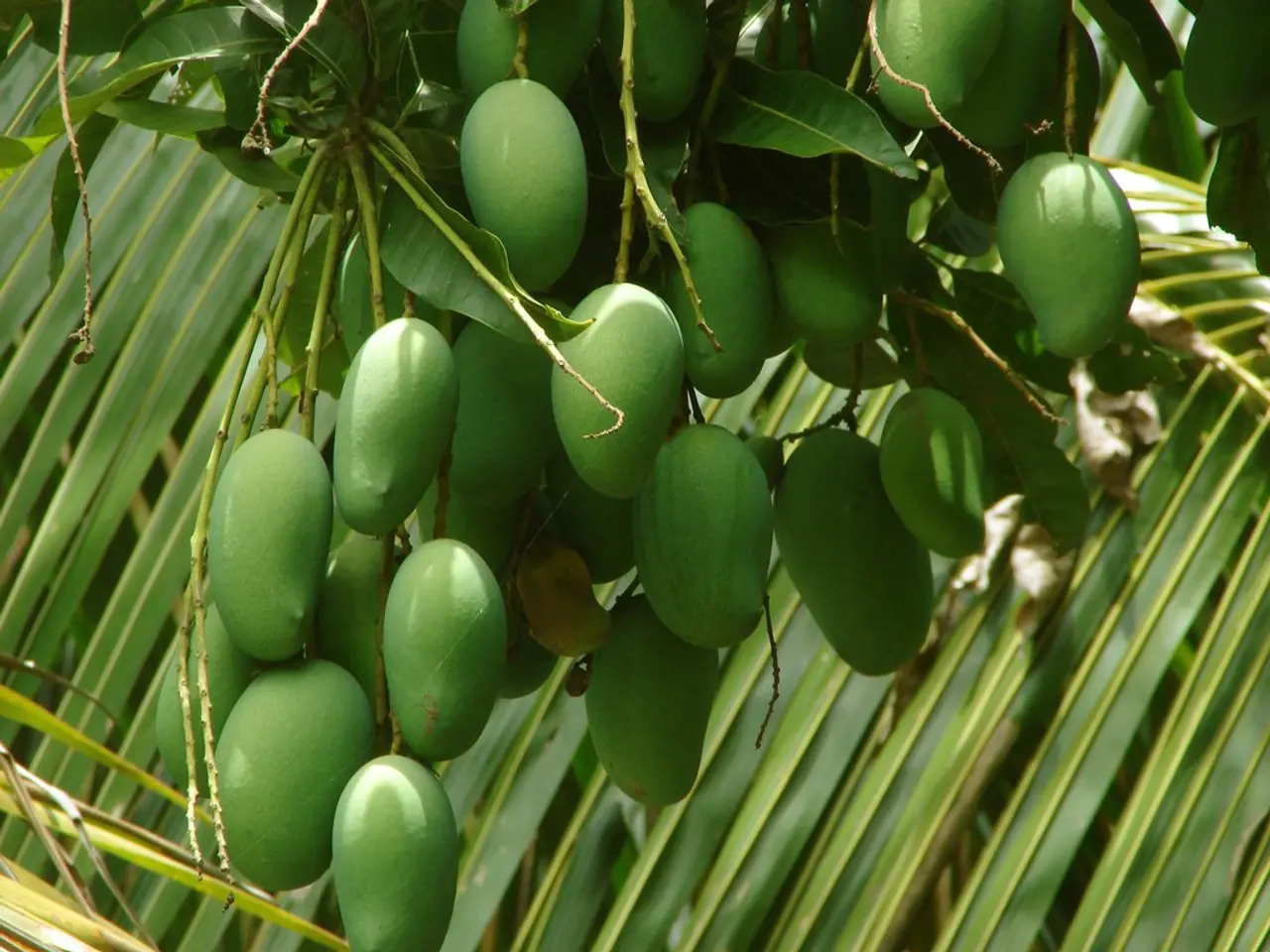Ideal Fertilizer for Mango Trees: Adequate Nutrients for Vibrant Development
Mango trees, renowned for their scrumptious fruits and dense foliage, necessitate a balanced and well-planned care regimen to flourish. Here's a rundown of the crucial elements for maintaining a healthy mango tree, from fertilizers to pruning techniques.
A balanced mix of nitrogen, phosphorus, and potassium (NPK 1:1:1) is suitable for mango trees. However, for optimal growth and fruit production, a slightly higher potassium content is advantageous, as it promotes healthy fruit development. The recommended fertilizer formula for mango trees is a balanced NPK ratio such as 10-10-10 or 13-13-13, combined with additional micronutrients including magnesium, manganese, zinc, and iron. Organic blends like 7-3-3 enriched with micronutrients and amendments (blood meal, kelp meal, humic acid) are also suggested for robust foliage, root development, and fruit quality.
Organic fertilizers are preferable for sustainable and healthy growth of mango trees. They enhance soil structure, which is vital for nutrient uptake, and can boost phosphorus levels. Inorganic fertilizers, while offering precise nutrient ratios, do not improve soil structure.
It's vital to adhere to recommended dosages and monitor nutrient intake meticulously to prevent over-fertilizing, which can harm mango trees. Over-fertilizing can lead to an imbalance in the soil, causing nutrient burn and hindering the tree's ability to absorb essential nutrients. Overwatering is detrimental and should be avoided as it can undermine tree health.
Proper pruning boosts fruit production and ensures high-quality mangoes. Pruning practices for mango trees include thinning, structural pruning, and sanitation. It's crucial to prune at specific times to avoid disrupting the flowering and fruiting cycles.
Before selecting a fertilizer, it is crucial to conduct a soil test to determine its current nutrient levels and pH balance. This will help you choose the right fertilizer and the appropriate dosage for your mango tree. The ideal time to fertilize mango trees is during their active growth season, avoiding the dormant winter months. Fertilizers should be spread evenly under the tree canopy, extending slightly beyond the drip line.
Glen, an outstanding gardener with over 15 years of experience in garden maintenance, design, and landscaping services, creates useful content for a blog. His latest posts are about the optimal timing for planting soybeans in Alabama, grass seed in Oregon, and carrots in Zone 5.
By adhering to these tips, you'll be well on your way to cultivating a flourishing mango tree that yields delectable fruits for years to come. Happy gardening!
Read also:
- Enhancing anti-inflammatory responses and promoting oral hygiene by means of turmeric
- Jaguar Swimming Distance Breaks Species Record, Puzzles Researchers
- Top 10 Austin-Based Advertising Firms Worth Exploring
- Comprehensive Guide to Electric Vehicle Infotainment: Nearly all key aspects covered regarding in-vehicle entertainment systems for electric vehicles




